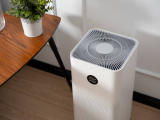May 2, 2011
Hawaii winds down dengue investigation
Health officials in Hawaii have closed their investigation into locally acquired dengue fever cases, though disease surveillance and volunteer efforts to raise mosquito control awareness will continue, the Hawaii Department of Health (HDH) said in an Apr 30 statement. Since Mar 24 the HDH has received 83 reports of suspected dengue cases, of which 65 have been ruled out. Five cases have been confirmed. The investigation revealed that the index case was a Pearl City resident who became infected while traveling abroad. Dr. Sarah Park, state epidemiologist, said in the statement that her staff will continue to investigate reported cases so the department can respond quickly to prevent further spread of the disease. The locally acquired dengue cases are Hawaii's first since 2001, when the disease sickened at least 122 people on three of the state's islands.
Apr 30 HDH statement
USDA opens comments for leafy greens safety proposal
The US Department of Agriculture (USDA) in an Apr 29 Federal Register notice opened the comment period on a proposed voluntary National Leafy Greens Marketing Agreement, which is designed to spell out best practices for preventing bacterial contamination of leafy greens and establish an audit-based verification program. The comment period is open for 90 days, with comments due by Jul 28. Comments can be submitted by mail or through the federal government's online regulations Web portal.
Apr 29 Federal Register notice
Apr 27 CIDRAP News story
Study profiles 2009 H1N1 risk in hospital staff
A South Korean study found that a mix of personal and occupational factors were linked to the risk of healthcare workers getting sick with 2009 H1N1 flu. Researchers conducted a survey between July and August 2010 at four general hospitals that were designated as local influenza centers during the outbreak. The self-administered questionnaire was distributed to 4,555 healthcare workers and had a 75% response rate. Nearly 28% reported having had a flu-like illness during the outbreak. Of 538 who underwent testing for 2009 H1N1 infection, 141 were positive. Nearly 75% of the infected workers were women younger than age 40. The three most frequent job types linked to flu infection were nurses (45.4%), physicians (19.1%), and nursing assistants (13.5%). Chronic underlying disease was also linked to 2009 H1N1 infection. Those who worked in outpatient and emergency departments were more likely to get sick, as were those who had infected family
members at home. The authors also found that the risk of infection was lower in healthcare personnel who always work masks and gowns.
May 1 J Infect abstract
Contaminated soap dispensers pose disease spread risk
Refillable bulk-soap dispensers can become contaminated, and washing hands with soap from contaminated units can spread disease-causing pathogens in public settings, according to a study in Applied and Environmental Microbiology. To gauge the risk, investigators conducted two lab-based hand washing studies, then corroborated their findings with a field study at an elementary school, where they identified 14 contaminated soap dispensers. One of the researchers is with GOJO Industries, Inc., an Akron, Ohio, company that produces hand soap, hand sanitizers, and other products. The team asked staff and students to wash their hands with soap from the dispensers, then measured bacterial levels before and after hand washing. They found that gram-negative bacteria on the subjects' hands increased 26-fold after using the contaminated soap. They also found that students transferred significantly more bacteria to secondary surfaces
after washing their hands using soap from contaminated dispensers. After testing, study participants decontaminated their hands by washing with uncontaminated soap and using hand sanitizer. The contaminated dispensers were replaced with those that used sealed-soap refills, and after 1 year, the researchers found no contaminated dispensers.
May Appl Environ Microbiol abstract




















